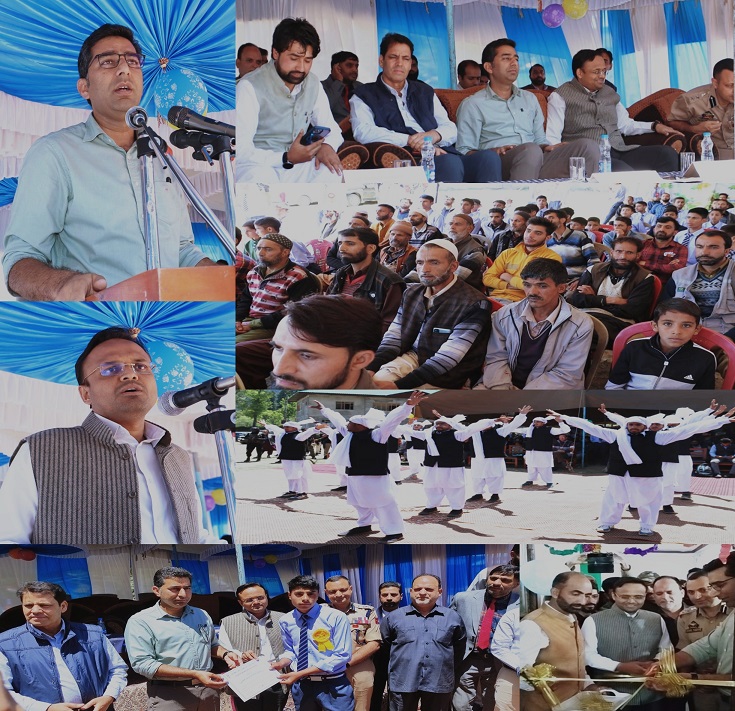Dr. NAQEEB RAJA
Marketing channels often vary according to the type of agricultural and horticultural produce marketing both for fresh produce and for semi-perishable produce which is normally through markets. These can either be formal markets, set up by the central or local government, or informal markets, where trade has spontaneously developed. The link between production and consumption is where farmers sell their own produce directly in a market. This is more usual in rural markets, but may also occur at farmer’s markets located in urban areas. The linkage between the rural and urban areas is often provided through a network of traders or intermediaries and the costs of their activities are being paid through the marketing margins. The role of these intermediaries may overlap and in less-developed marketing systems and their function may be unclear.
The relationships among producers, wholesalers, and retailers play an important role in the marketing of farmer’s produce and such linkages can create mutual trust among different functionaries in the marketing system, but also cause a dependency relationship between parties and make it difficult for newcomers to enter the marketing process. Linkages are often based on village proximity (area based) or on family relationships developed over many years. Rural Markets normally form part of the local trade network and are usually arranged on a periodic basis, on specific weekdays. They are commonly organized at a central place in a village or district centre or beside a village’s access road. In some instances, provincial and district-level markets also serve this function, as well as providing an assembly function (by combining produce in larger quantities for onward sale to outside buyers).
Larger rural markets occur where greater quantities of produce are traded, either by the producers themselves or by traders. These “assembly” markets, which are often combined with local rural or town markets, are normally situated on main highways, near to local transport interchange points. Traders, collectors and commission agents, acting on behalf of urban wholesalers are the main buyers of produce at these markets.Terminal wholesale and semi-wholesale markets are located within or near major cities. These centers may be supplied by purchasing/assembly centres in the rural areas or directly from farms, particularly those in “peri-urban areas”. The supply is either from agents, traders or by the farmers themselves within wholesale markets, traders often handle the transactions and only larger producers deliver their own produce. Thus, the product after its arrival in an urban area often passes through a number of intermediaries, including retailers before it reaches consumers. These are markets directly serving consumers. Although primarily retail, they may have a semi-wholesale function, particularly if they allow farmers to trade in them. In that case, they are often called “farmers-markets”.
Petty traders and assemblers are specialized middlemen that purchase produce from farmers at the farm-gate or local market for selling to other traders, wholesalers and retailers. They may use their own transport or hire from a transporter. Independent collectors and commission agents who take possession of produce from an individual or group of farmers and then sell the produce to a wholesaler, market trader or other middleman for providing these services the collector (or commission agent) normally charges a percentage of the final sales price. Market agents linked to specific markets who sometimes also act as brokers for wholesalers or as auctioneers at the market. Wholesalers and semi-wholesalers located in markets or independent facilities, who may also function as retailers. Retailers, who buy either directly from farmers, from traders or wholesale markets, and sell the products to consumers through retail outlets.
Contract arrangements: Sometimes, contracts may be arranged with an organization, such as a food processor or wholesaler, who makes an advance contract with a group of farmers to supply a specified product on a regular basis. The buyer usually provides seed and extension advice, sometimes credit, and also guarantees to procure the produce at harvest at an agreed price. Poultry farmers may develop a long-term relationship with poultry processing companies, who may provide baby chicks, feed, and medicines and when the broilers are ready for sale, they purchase them from the farmers at the prevailing market price or at a previously agreed price. Other linkages and other possibilities for linkages are direct agreements with organizations, such as: restaurants and hotel chains; cooperatives, particularly for grains and export crops, such as coffee and tea; supermarket and Chain stores; and institutions, such as schools, army or hospitals. With these arrangements an individual or group of farmers make a collective agreement for the supply of produce. Transport would be either organized by the farmers or may be supplied by the buyer.
Group marketing: There is often scope for group marketing of produce to obtain better prices for farmers for high value vegetables and fruits, especially for export, contract arrangements may be feasible. Vertical integration: There may be cases where these contract arrangements are extended to create a vertically integrated marketing process. Typically this might apply when farmers groups enter into contracts with supermarket chains or exporters. The characteristics of such a system might include: organization of farmer groups; providing extension services and production inputs to the farmer groups, sometimes through NGOs; harvesting of crops and pre-sorting at farm level; transport from farm to a packing centre; final sorting and grading; packaging (including film wrapping of high value produce) or processing; pre-cooling and temporary storage in packing centre cool store; loading onto refrigerated truck from packing centre cool store; transport by refrigerated truck from packing centre to supermarket (or export) cool store; and sale from supermarket display and cooling cabinets.
Solution: The Market Access Programme sets out to strengthen the economic sustainability of smallholder and commercial producer farms by addressing upstream and downstream market access challenges across the value chain. Through this programme, the following services are delivered to farmers:
- A diagnostic analysis of the selected farms or projects is conducted to identify gaps and/or areas of intervention.
- Provide support to farmers to attend market readiness/access training and study tours (e.g., Fruit Logistica) based on skills and knowledge gaps offered to producers.
- Support farmers to attend conferences e.g., the Making Markets Matter Conference.
- Provide on-farm technical assistance/advice to deciduous fruit producers on a regular basis varying from weekly, bi-weekly and monthly visits depending on the individual grower’s needs. 5. Provide once-off on-farm technical training to producers of other commodities through outsourced commodity/product specialists based on the specific needs of the farmers.
- Facilitate market linkages between farmers and various markets e.g. processors, local supermarkets, municipal markets, hospitality, international markets, etc.
- Potential linkages of producers with overseas markets are also supported through market development. Producers are also assisted with logistical arrangements.
- Support farmers to comply with international certification programme addresses basic food safety requirements which include traceability of fresh produce from the point of production to the retailer until it reaches the final consumer and record-keeping of all activities undertaken during the production of fresh produce, hygiene and responsible use of agrochemicals such as pesticides, fungicides and fertilisers.
- Provide financial support for pre-audits to be conducted on farms.
- Monitor producers (and provide support where possible) in addressing non-conformances. 11. Provide support for final audits.
- Exhibitions/festivals, FPI offers local marketing exhibition initiatives in an attempt to promote local niche agricultural speciality products.
- Support in the development of marketing materials (e.g., banners, brochures, flyers, barcodes, labels, etc.)
- Identification of the farmer’s products and linking them with commercial and institutional buyers.
- Connecting farmers’ organizations and buyers to the supply chain through the aggregation of service providers.
- Facilitate the development and negotiation of contracts with buyers.
- Educating and creating value through the development of packaging, branding and exposing farm output direct to the consumer market and commercial establishments.
- Promoting good agricultural practices for the production of pesticide residue-free, quality food and linking the same to premium buyers. 18. Enhancing farmer entrepreneurship through market linkages.
(Author is Subject Matter Specialist Parivarthan-ISAP)








